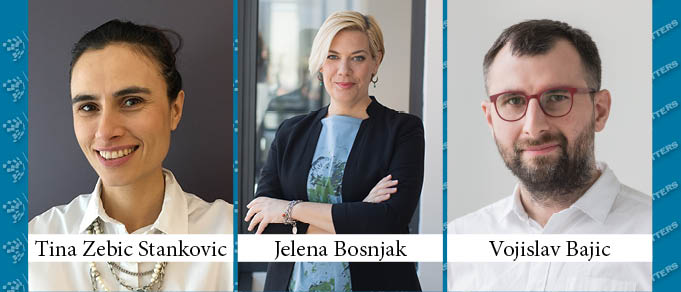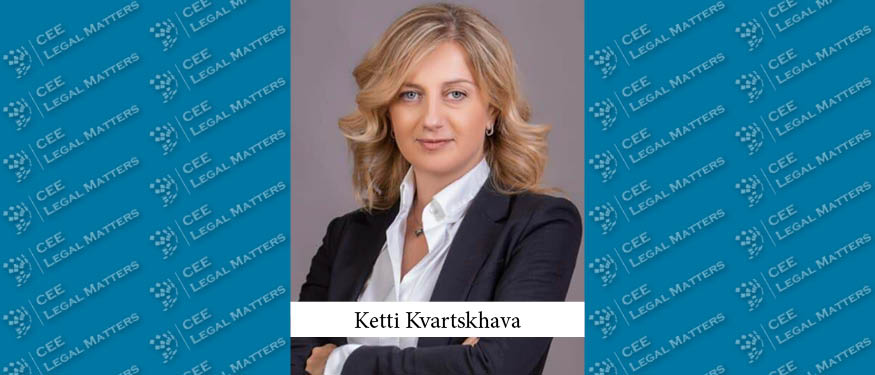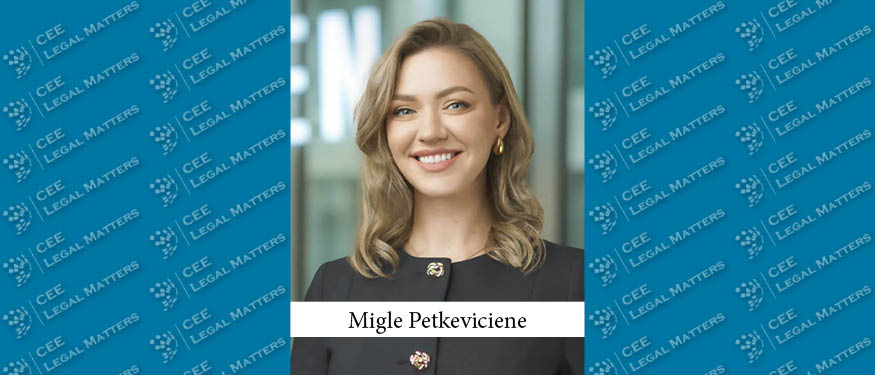Advertising is no easy task for law firms in the former Yugoslavia, and law firm marketing and business development specialists in those legal markets face unique challenges in their attempts to promote their firms and obtain new clients.
Legal Barriers
The largest obstacles come in the form of the laws and codes of professional ethics applicable to lawyers. For instance, the Legal Professions Acts of Serbia and both entities of Bosnia and Herzegovina state that, “attorneys-at-law, joint law offices and law partnerships cannot advertise.”
The same principle is reiterated in one form or another in ethical codes and codes of professional conduct of bar associations across the region. For instance, Montenegro’s Code of Professional Ethics of Attorneys-at-Law states that, “it is considered that a lawyer is offering his services in a dishonorable or not-permitted way, especially when: He publicizes and disseminates in public newsletters or other publications advertisements and offers through which he recommends his own or his law firm’s services; or when he allows such offers to be included in advertisements and other printed materials of other natural or legal persons; or when he, for the same purposes, uses an activity which he may conduct parallel to the legal profession.”
Meanwhile, the Code of Professional Conduct of the Bar Association of Slovenia states that: “Lawyers shall compete between themselves merely in the quality of their performance;” that “the lawyer may only convey those data [sic] on himself and his activity that are real, true and refer to his profession;” and that “advertising of the lawyer’s practice is prohibited.”
And the Ethics Code of the Bar Association of North Macedonia states that “a lawyer cannot advertise or attract personal publicity in an inappropriate way,” and that “it is prohibited to advertise lawyer’s activities.”
Tina Zebic Stankovic, Business Development Administrator at Divjak, Topic, Bahtijarevic & Krka in Croatia, where lawyers operate under an essentially identical prohibition, notes that “these restrictions have been in place since time immemorial,” and she notes that they’re not exclusive to lawyers. “We can see that some other professions, such as notaries, have similar rules.”
And, at least on the record, few of the leading business development specialists in the region object to these restrictions. Indeed, many insist that the rules are necessary to maintain a balanced playing field, so that larger firms, which are assumed to have more resources at their disposal, are not put at an unfair advantage over smaller firms or solo practitioners.
Jelena Bosnjak, Senior Business Development Manager at CMS in Croatia, explains. “I believe that our Bar Association has put these rules in place in order to maintain the integrity of our profession,” she says. “In our country, it is very difficult for a more affluent company to push a smaller one out of the market by pouring money into aggressive marketing strategies.” Thus, she says, “I believe the rules prevent law firms from behaving in a populist way, and, in turn, it maintains the dignity of the legal profession as a whole.”
“As far as I know, in the 11 jurisdictions which surround Croatia, the rules are very similar to ours,” Bosnjak says, although she recognizes that “in countries like Poland or the Czech Republic, the situation is more liberal, and thus it is much easier to advertise a law firm.”
And, Bosnjak says, the countries that allow law firm advertising have stratified as a result. “It seems that the liberal approach in said countries led to certain layering,” she says. “In those jurisdictions, the top layer of firms seems to have the most access to really big deals. So it is generally the case that you will see names such as CMS, DLA Piper, and so on, handling those cases. On the other hand, in Croatia, Serbia, and Bosnia, smaller firms get their share of the cake much more often.” In her mind, the conclusion is clear. “I believe such a trend in our country, and similarly in other ex-Yugoslav states, can be attributed to the rules and regulations put in place by our Bar Association.”
Vojislav Bajic, Business Development Manager at BDK Advokati in Belgrade, says the logic is simple: “The rationale behind the ban is that a lawyer’s expertise should be the main factor influencing client’s decision to hire a lawyer, and that law firms do not operate on the market of services.”
Alternatives
Of course, that doesn’t mean there’s no way of reaching out to potential clients, and firms in the Balkans make frequent use of alternative methods of promoting their capabilities. Bajic says that, at BDK, “we mainly promote our firm through our own channels, which include our website and online social networks. We use these channels to post articles containing legal analysis, as well as news about successful projects we advised on, which are often republished by other specialized websites and magazines. In addition, we write analytical legal articles in expert magazines in Serbia and abroad.”
Zebic Stankovic’s and Bosnjak’s firms also publish thought leadership articles as a means of reaching out to the market. According to Bosnjak, “we also publish e-guides. They are free of charge, and they offer opinions and reviews of judicial practices. Our subscribers choose their jurisdiction of interest, and we periodically email them the guides.”
Of course, different firms have different strategies. Bajic, at BDK, claims that, “for law firms primarily focused on the corporate sector and institutional clients, content marketing is the most important thing. One aspect of it is participating in conferences and other expert gatherings, which are attended by representatives of potential clients.”
By contrast, Bosnjak says that, “conferences are not very important to us. Through our cooperation with CMS, we get enough exposure without them. There is currently an inflation of conferences, and the key decision makers seldom attend them.” Thus, she says, “it is much more prudent to organize law firm-to-law firm networking – it is not uncommon for partners to, once or twice per year, visit their colleagues in, say, London or Munich, and talk about future cooperation over lunch.”
The value of ranking services is disputed as well. Both Zebic Stankovic and Bosnjak find the rankings valuable, though they note that the same rules that limit advertising in their markets also limit their ability to make maximum use of the ranking sites. “We agree to be listed by name on those lists, but we cannot include the link to our website there,” reports Bosnjak, and Zebic Stankovic adds that, “we do not advertise our ranking or awards, nor do we post logos of Legal 500, Chambers, or IFLR 1000 on our website – something that law firms from other countries with less restrictive rules normally do.”
By contrast, Bajic says, “being featured in Chambers or Legal 500 is less relevant to us, because the ranking methodology and criteria are not always clear. We find that experienced clients do not rely on those rankings too often.” Still, he concedes, “those lists could be useful, especially for clients who are getting to know a jurisdiction for the first time.”
Finally, there is the classic “word-of-mouth” means of promotion, which Zebic Stankovic describes as “the main mode of reaching new clients for us.”
Changing Times
Things may be changing, and the restrictions that limit advertising in the former Yugoslavia may slowly be falling, as they have across most of Europe over the past 30 years.. Bosnjak believes that, “there is a trend towards relaxing the rules, prompted primarily by the expansion of new technologies. Once they become commonplace in our society, they get accepted by the Bar Association as well. For instance, 15 years ago, it was unimaginable that a law firm could have a website. We see that that has changed. Also, you could not post a picture of the lawyers on your team, but that too has changed.”
“In addition,” Bosnjak adds, “nowadays we can see that many professionals around the world are using LinkedIn for personal promotion. Some are even using it for political campaigns. However, lawyers are still mostly prohibited from using it freely. It is a relatively young technology that seems to need a bit more getting used to.”
Still, she says, even with the other new technologies the Bar has not abandoned its oversight responsibilities completely. “There are still restrictions in place, even regarding website content, which must be approved by the Bar Association. For example, in Macedonia or Slovenia firms are not allowed to mention the names of their clients, or to talk about their prior experience. Croatia and the rest of the region share a similar, but less restrictive regime.
“It is difficult to imagine our system without the rules as they are,” Zebic Stankovic concedes, but she admits that a different system might be better. “Even though we manage fine despite them, they are probably an obstacle for smaller firms. That is why it would be better to harmonize our rules with those seen in other EU countries, and in turn make the rules a bit more liberal.” She adds that, “as a member of the Bar Association, we have raised some questions before its relevant bodies, however the effects are yet to be seen.”
“It would be beneficial if the rules transitioned from banning lawyers from advertising to regulating the content of the advertisements,” Vojislav Bajic says. “In essence, advertising in the legal profession should be regulated in the way similar to professions which are currently unrestricted by similar bans. Such an approach would help potential clients more easily identify the lawyers or law firms possessing necessary expertise.” He sighs. “However, to the best of my knowledge, changes of that nature do not seem to be in the pipeline.”
This Article was originally published in Issue 7.9 of the CEE Legal Matters Magazine. If you would like to receive a hard copy of the magazine, you can subscribe here.













